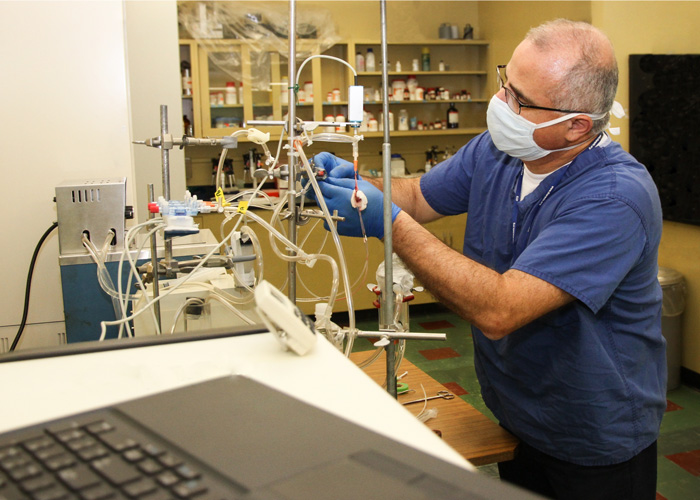Deep Learning and Machine Learning Approaches in Advanced Magnetic Resonance Imaging for Reducing Cancer Treatment-Induced Cardiotoxicity
Dissertation Date: January 31, 2024
Radiation therapy (RT) stands as a cornerstone in the battle against cancer, especially in the context of lung and breast cancers. Its instrumental role has led to a pronounced decrease in the rates of cancer recurrence and associated mortality. Nonetheless, an unintended consequence of this success manifests in cancer survivors. Specifically, those who have been exposed to thoracic RT find themselves at a heightened risk of RT-induced cardiotoxicity, a detrimental side-effect of the treatment that contributed to their survival. While a plethora of studies have delved into chemotherapy-induced cardiotoxicity, our understanding of RT-induced cardiotoxicity, particularly in the domain of lung cancer, remains embryonic.
Currently, detecting RT-induced cardiotoxicity heavily relies on the evaluation of the left ventricular ejection fraction (LVEF) using echocardiography as the primary diagnostic tool. However, its limitation is starkly evident when it fails to discern the embryonic stages of subclinical cardiovascular diseases (CVD), which might eventually spiral into a more pronounced cardiac dysfunction. The usage of echocardiography, despite its affordability and accessibility, presents challenges, including variable acoustic window quality, geometric assumptions, and operator dependency. Conversely, cardiac magnetic resonance imaging (MRI), regarded as the gold standard for cardiac function evaluation, offers enhanced diagnostic capabilities, particularly with its ability to assess myocardial strain at regional levels. This could potentially serve as an early diagnostic tool for incipient cardiac anomalies. However, MRI’s extended scan durations and associated costs are recognized limitations.
In response to these diagnostic challenges, this study aims to harness deep learning (DL) methodologies. The objective is to devise a DL algorithm capable of automatically generating both global and regional cardiac function metrics from a selectively streamlined set of MRI images. This DL-based approach seeks to overcome the limitations of existing diagnostic tools, offering a more granular perspective on cardiac function. Additionally, the study is investigating specific MRI parameters to determine potential early markers of RT-induced subclinical cardiac dysfunction, utilizing diverse animal RT models.
The intended outcome of this research initiative is twofold: a deeper comprehension of RT’s cardiovascular implications and the development of preemptive tools against RT-induced cardiotoxicity. The anticipated impact is a more individualized and timely intervention for patients fostering enhanced clinical outcomes and potentially leading to a reduction in the healthcare burdens associated with cardiotoxicity in cancer survivors.
Return to Dissertation Schedule


